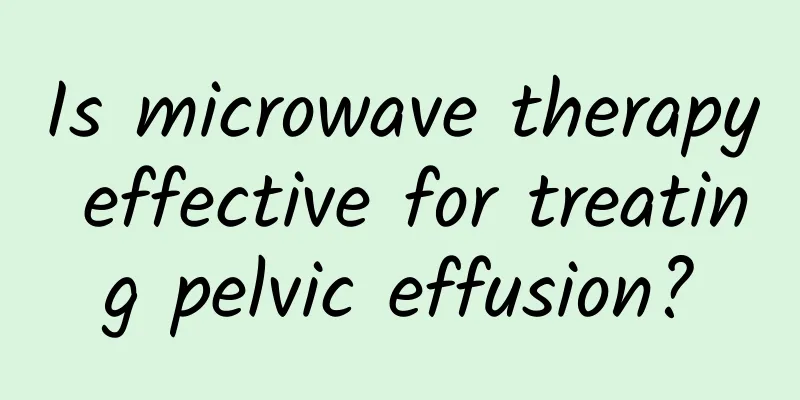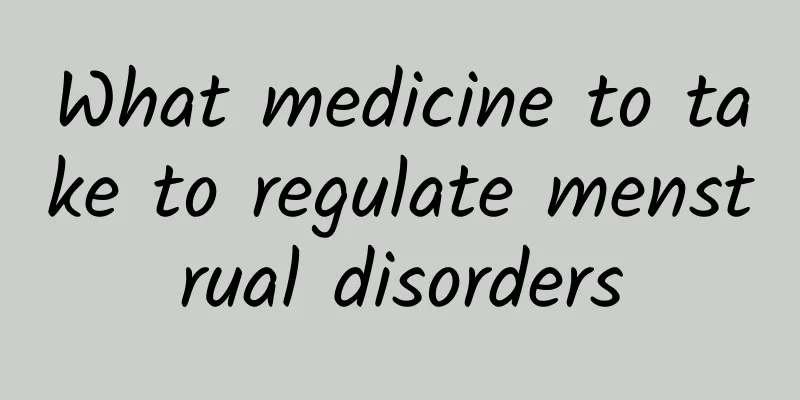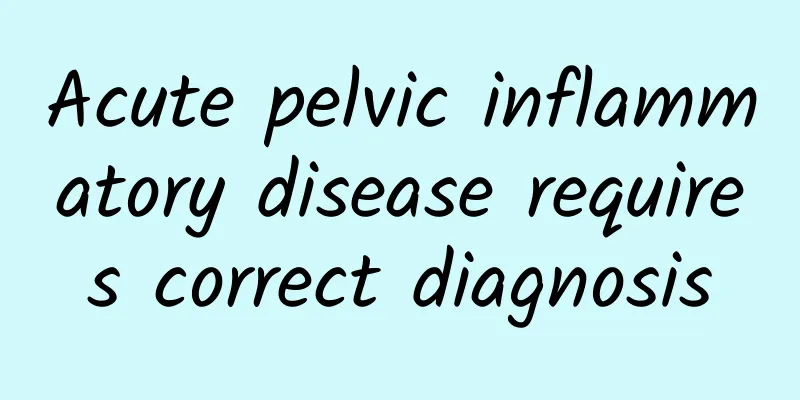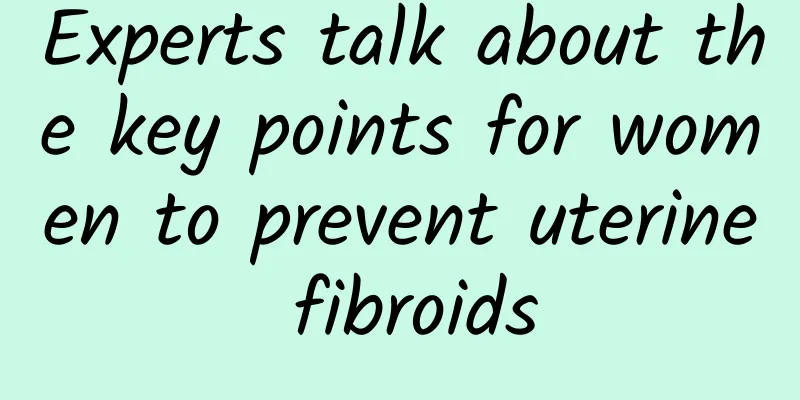What medicine can be applied to uterine fibroids? Is there any external medicine for uterine fibroids?
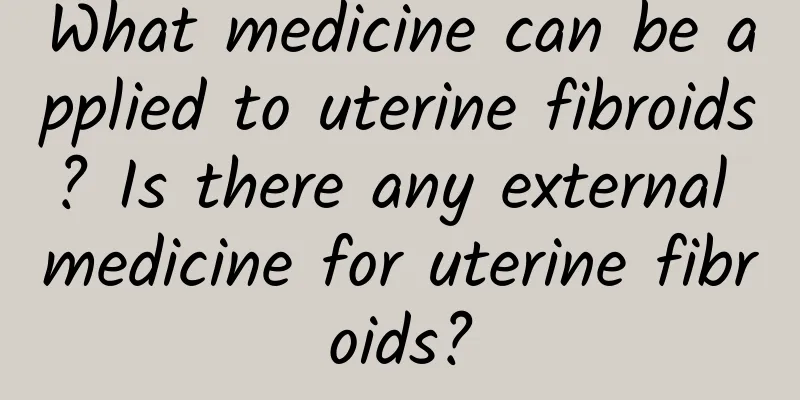
|
Uterine fibroids are one of the most common tumors in women, mainly manifested as the proliferation of endometrial and myometrial tissues. Many patients have questions about the treatment and drug treatment of uterine fibroids, especially whether there are topical drugs available for uterine fibroids. This article will give a detailed introduction to this topic. It should be made clear that uterine fibroids are usually not suitable for treatment by topical application. Topical drugs usually act on the surface of the skin, while uterine fibroids are located inside the uterus, so direct application of drugs cannot achieve the purpose of treatment. Treatment of uterine fibroids usually requires surgery or oral medication. Regarding drug treatment, there are currently two main methods: oral administration and drug injection. Oral administration of drugs mainly achieves the purpose of treating uterine fibroids through oral medication. Common drugs include anti-progestins, progesterone drugs, anti-estrogen drugs, etc. These drugs can regulate hormone levels in the body and inhibit the growth of uterine fibroids. Drug injection usually refers to uterine fibroid embolization treatment, which achieves the treatment effect by injecting drugs directly into the blood vessels of uterine fibroids, causing the tumor blood supply to be interrupted. In addition to drug treatment, surgical treatment is also a common method for treating uterine fibroids. Depending on the size and location of the uterine fibroids, different surgical methods can be selected, including myomectomy, myomectomy, and myomectomy. These surgeries can directly remove or remove the fibroids, thereby achieving the purpose of treating uterine fibroids. Popular science introduction: Uterine fibroids are common benign tumors in women, usually occurring in women of childbearing age. Symptoms of uterine fibroids include irregular menstruation, pelvic pain, and a feeling of heaviness in the lower abdomen. Severe uterine fibroids may lead to infertility. For the treatment of uterine fibroids, factors such as the condition and age are usually considered comprehensively based on the patient's condition, and then the most appropriate treatment method is determined. If the uterine fibroids are small and have no obvious symptoms, conservative treatment can be chosen and observed for a period of time; if the uterine fibroids are large or have obvious symptoms, surgical treatment or drug treatment may be required. When choosing a treatment method, it is recommended that patients consult a doctor as much as possible and make decisions based on their personal circumstances. Uterine fibroids are usually not suitable for treatment by applying medication. Currently, medication and surgery are common treatments for uterine fibroids. It is crucial to choose the most appropriate treatment method based on the condition and the patient's personal situation. If you have problems related to uterine fibroids and need treatment, please seek medical attention in a timely manner and follow the doctor's advice. |
<<: What are the causes of uterine fibroids? What are the causes of uterine fibroids?
Recommend
7 magic tools to help with recovery after COVID-19 diagnosis! Nutritionists teach you what to eat when you have a fever, sore throat, cough, or phlegm?
The number of confirmed cases of COVID-19 has exc...
What are the symptoms of severe cervical erosion?
What are the symptoms of severe cervical erosion?...
What are the methods for treating adnexitis?
Adnexitis is the most common gynecological inflam...
We'd better pay attention to the causes of ovarian cysts
In fact, the most fundamental reason why ovarian ...
Can I have an abortion if I am pregnant with pelvic inflammatory disease? When does pelvic inflammatory disease usually occur?
Pelvic inflammatory disease is a common gynecolog...
Not having any success with weight loss and don’t want surgery? Gastroscopy for weight loss can solve the problem
With Taiwan's westernized lifestyle and eatin...
The causes of vulvar leukoplakia are also manifested in many aspects.
Vulvar leukoplakia is a very common disease in wo...
What medicine is most effective for dysmenorrhea
There is no single drug that is most effective fo...
What are the daily nursing tasks for preventing and treating dysmenorrhea?
What are the daily nursing tasks for preventing a...
What fruits should women eat more after abortion to help recovery?
Abortion is very harmful to women’s bodies. After...
How to check menopause?
Menopause is a problem that every female friend h...
What are the common symptoms of ectopic pregnancy?
What are the common symptoms of ectopic pregnancy...
Different types of vaginitis symptoms should also be taken seriously
Different types of vaginitis symptoms should also...
What are the effects of pelvic inflammatory disease?
The incidence of pelvic inflammatory disease is r...
What are the reasons for women's delayed menstruation? How to regulate women's irregular menstruation
Many women have irregular menstruation problems, ...
